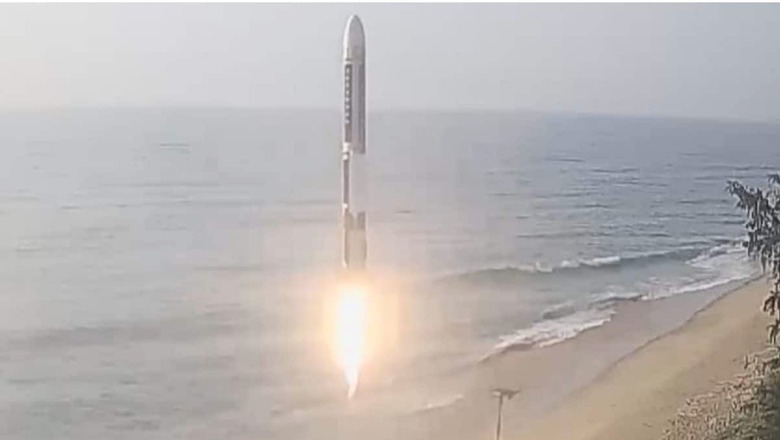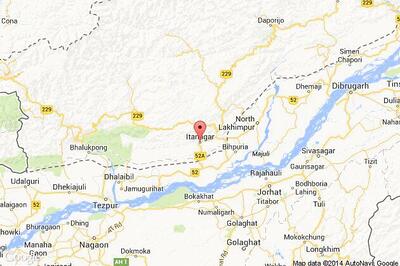
views
Chennai-based start-up Agnikul Cosmos successfully launched its indigenously built rocket from the Satish Dhawan Space Centre in Sriharikota on Thursday morning. This also marked the maiden rocket flight from Sriharikota’s first private launchpad Dhanush, which the team had designed and developed.
“Happy to announce the successful completion of first flight of Agnibaan SOrTeD – from our own and India’s first and only private Launchpad – Dhanush. All the mission objectives of this controlled vertical ascent flight were met and performance was nominal,” said the IIT Madras-incubated start-up after the successful completion of the demonstration at 7.15 am on Thursday.
The launch vehicle, Agnibaan SorTeD (Sub-Orbital Technology Demonstrator) was powered by one of the country’s first 3D-printed semi-cryogenic engines that the Agnikul team had indigenously manufactured and patented. Unlike liquid-based engines, which have multiple parts and need to be assembled, the entire single-piece 3D-printed engine can be manufactured as one component, which tends to increase the reliability of the hardware and bring down the preparation time.
The mission was planned to demonstrate its critical components, though it did not carry any payload. However, according to the team, Agnibaan can be configured to accommodate payloads ranging from 30 kg to 300 kg. Set up in 2017, the start-up has been working on this test flight for over a year now and had attempted the launch recently in March as well.
Indian Space Research Organisation (ISRO) chief S Somanath who was also present during the demonstration applauded the success of the team. “This launch marks many firsts including 3D-printed semi-cryogenic engine, flight control systems, and demonstrates the prowess of indigenous design and innovation. It motivates ISRO to support space start-ups and non-governmental entities for innovation to create a vibrant space ecosystem in the country,” he said.
The rocket has been designed to be compatible with the mobile launchpad Dhanush, allowing for launch flexibility regardless of location. With over 200 engineers, the Agnikul team has been guided by 45 former scientists from ISRO. “Agnibaan SOrTeD is only the beginning and we are hopeful of contributing to India’s technological and economic growth,” said Moin SPM, co-founder and COO, Agnikul Cosmos.
With the technology demonstration successful, the start-up is now looking to fly an orbital mission towards the end of the financial year of 2025 and work with private customers on flights. Over a hundred space-tech start-ups have mushroomed across India since the government opened the space sector for private participation.
“This marks a significant moment for private players who are contributing to growing India’s space sector. Today it is the power of young innovators and entrepreneurs who are leading from the front, innovating with cutting-edge technology such as the world’s first 3D printed semi-cryogenic engine, that is driving the transformation of India’s space sector,” said chairman of IN-SPACe Dr Pawan Goenka who also attended the launch.
Explore in-depth coverage of Lok Sabha Election 2024 Voter Turnout, Upcoming Phase, Results Date, Exit Poll And Much More At News18 Website


















Comments
0 comment